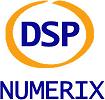The world’s most portable DSP library
Highly portable ANSI‑C source with 950+ base functions, exhaustive examples, and decades of real‑world deployment across embedded, desktop, and server‑class targets.
- Quick integration
Drop‑in C API with full examples to accelerate time‑to‑first‑signal. - Broad device support
ARM Cortex, Raspberry Pi, TI TMS320, ADI SHARC/TigerSHARC, XMOS xCORE, and more. - Flexible environments
Windows, macOS, Linux/UNIX, IDEs (CCS, IAR, Keil), and popular frameworks. - Fully documented
60k+ lines of source with examples, app notes, and long‑term maintenance.
Features & Benefits
- Highly portable ANSI‑C source
- Quick and easy DSP algorithm implementation
- Full C source supplied (60k+ lines)
- 950+ base functions with complete example programs
- Fully documented and supported
- Ported to the latest DSPs & microprocessors
- One year of free upgrades and advice
- Royalty‑free for object code deployment
Applications
- Telecommunications
- Acoustic room response analysis
- Audio effects processing
- Sound & vibration control
- Electronic surveillance & intelligence
- Sonar / Radar
- System simulation
- Medical signal & image analysis
- Aerospace / Radio / Nuclear physics
- Automotive control & simulation
- Bioinformatics, Biotechnology, Biometrics
One customer’s SigLib application handles 100+ simultaneous 8 kHz DTMF channels on a single Pentium II / Linux platform.
Supported Processors
- ARM Cortex™
- Raspberry Pi
- TI TMS320™
- Pentium™
- ADI SHARC™ / TigerSHARC™
- StarCore 810x™
- XMOS xCORE
Supported Environments
- Windows™ 10 / Mobile
- Apple macOS
- UNIX™ / Linux™, GNU C/C++
- TI Code Composer Studio™ & DSP/BIOS II™
- ADI VisualDSP™
- Keil uVision™ / IAR Embedded Workbench™
- Python, Java, Perl, C#
- Gnuplot, PortAudio, Qt, wxWidgets, Matlab™, LabView™, Ch™
See Partners for more details.
Digital Filter Plus™
FIR & IIR digital filter designer for Windows™, Linux™, and macOS™. Supports fixed‑point (Q‑format) and floating point targets.
- Windowing
- Parks‑McClellan (Remez)
- Hilbert Transform
- Raised Cosine / Root Raised Cosine
- Gaussian
- Pole‑Zero Placement
- Butterworth / Chebyshev / Inverse Chebyshev / Elliptic / Bessel
- Bilinear & Matched Z‑Transform
- Notch Filters
SigLib Functional Overview
Spectrum Analysis
FFTs (real/complex, zoom, arbitrary length), spectrogram, microscan, power spectral density, chirp z‑transform.
Windowing
Hann, Hamming, Blackman, Triangle, Rectangular, Kaiser, Blackman‑Harris, Flat‑top; with optional inverse coherent gain compensation.
Filtering
FIR/IIR (biquad, non‑causal, one‑pole), polyphase multi‑rate, differentiation/integration, Hilbert, Goertzel, Gaussian, Lagrange/Farrow/Kalman, RRC/RC; frequency‑domain OLA/OLS; Adaptive LMS (7 variants).
Convolution / Correlation
Linear, circular, and partial; covariance.
Signal Generation
Sine, cosine, white/Gaussian noise, chirp, square, triangle, sawtooth, impulse, PN sequence, resonators.
Statistics & Regression
Mean, variance, std dev, kurtosis; interpolation; linear/log/exponential/power, trend & detrend.
Imaging
2D FFT, DCT (8×8), convolution, median, Sobel, threshold, histogram & equalisation, zig‑zag scan.
AI / ML
CNN training (fit) & inference (predict) for MLPs with configurable activation functions.
Communications
AM/FSK/FM/QAM/QPSK mod/demod, scrambler/descrambler, complex‑shift, spectral inversion, envelope detection, mux/demux, DTMF generation & detection, BER.
Digital Effects
Reverb, distortion, echo, pitch shifting (time & frequency domain).
Vectors & Control
Rich real/complex vector ops, dot‑product, PID, PWM, AGC, ZCD.
Matrix Algebra
Multiply/divide, LU decomposition, determinant, linear system solving.
Licensing
SigLib is open‑source and free for personal & educational use. Commercial development requires a license. No runtime royalties when SigLib object code is embedded in products.
View PricingIntroduction To SigLib DSP Library Video
Download The PresentationGet in touch
Have a question or need an algorithm that’s not listed? It might already be in development.
Follow
© 2024 Delta Numerix. SigLib, Digital Filter Plus and Numerix‑DSP are trademarks of Delta Numerix. Other trademarks acknowledged.
